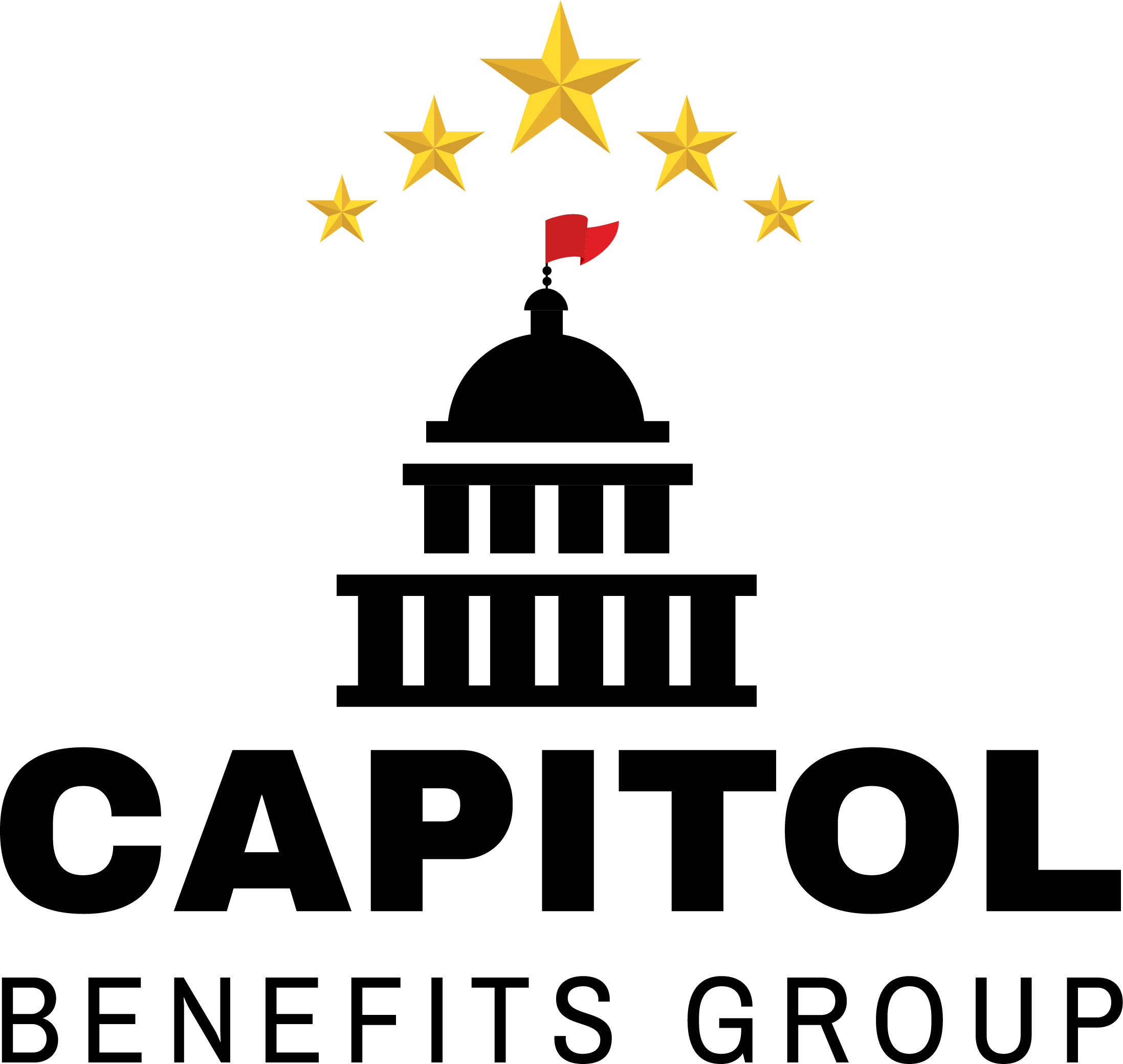Capitol Benefits Group News & Updates
UPCOMING WEBINAR: Health Plan Compliance Updates for Employers
Join us for a discussion on recent updates to compliance requirements for health plans, including changes to COVID-19 plan rules and preventive care requirements. We will review the latest developments and answer questions on how employer plans may be affected.
This webinar will happen on May 24th at 12pm CST, presented by Erica Storm, Esq. Register here. This webinar will be recorded and available for future playback.
Employer Plan Guidance Issued on the End of the COVID-19 Emergency Periods
On April 10, 2023, President Biden signed H.J. Res. 7 into law, thereby ending the national state of emergency related to COVID-19 that was declared under the National Emergencies Act.
Separately, the Biden Administration has announced that May 11, 2023 will be the last day of the National Public Health Emergency (the “PHE”) declared by the Department of Health and Human Services and its target date for wrapping up other COVID-19-related emergency actions.
Furthermore, on April 1, 2023, state governments resumed conducting Medicaid eligibility determinations, a routine process that was halted in the spring of 2020 due to COVID-19.
On March 29, 2023, the Departments of Labor, Health and Human Services, and Treasury issued FAQs explaining the impact that the end of these emergencies and the resumption of these Medicaid determinations will have on health plans. The key takeaways from this new guidance are outlined below.
End of the “Outbreak Period”
During the COVID-19 National Emergency, many of the timeframes related to plan administration were suspended as a result of the “Outbreak Period.” Under the related guidance, these timeframes were generally paused for one year or until 60 days after the end of the COVID-19 National Emergency (otherwise known as the end of the Outbreak Period), if sooner. The FAQs refer to this period during which the otherwise applicable timeframes were paused as “disregarded periods.” Currently, legal clarification is needed as to what official date will be used to calculate the end of the COVID-19 National Emergency Period, but we believe it to be May 11, 2023. If this is the case, the Outbreak Period will end and all otherwise applicable timeframes will begin applying again on July 10, 2023.
The key timeframes suspended during the Outbreak Period are those for:
Making elections and paying premiums under COBRA;
Requesting special enrollment in a group health plan; and
Filing claims and appeals under a plan’s claims procedures.
The FAQs lay out the following general principles with respect to the end of the Outbreak Period and the reinstitution of previously existing timeframes:
These timeframes are statutory minimums; health plans are legally permitted to allow more time for participants to complete these actions. In fact, the guidance explicitly encourages health plans to do so. We note, however, that plan sponsors should consult with their carriers and stop loss carriers prior to offering any benefit beyond what is legally required.
With respect to COBRA election notices for individuals who lose group health plan coverage before the Outbreak Period ends, their election notice is due no earlier than September 8, 2023 (60 days after July 10th). Notably, depending on the date the COBRA election notice is provided, it is possible for an election to be due after September 8, 2023 for an individual who loses coverage prior to the end of the Outbreak period. The guidance also emphasizes that whether an individual loses coverage before or after the end of the COVID-19 National Emergency is not relevant for purposes of this analysis. As long as the loss of coverage occurs on or before the end of the Outbreak Period, the individual will have at least until September 8, 2023 to submit their election notice.
Any COBRA premiums due for coverage through July 2023 are due by August 24, 2023.
The extension to special enrollment rights applies to any triggering event that takes place during the Outbreak Period (i.e., until July 10, 2023). Participants who experience triggering events within this timeframe have until August 9, 2023 (30 days after the end of the Outbreak Period) to request special enrollment in a group health plan.
Reminder Regarding Medicaid/CHIP Special Enrollment Rights
During the public health emergency, state Medicaid agencies have generally not terminated the enrollment of any Medicaid beneficiary who was enrolled on or after March 18, 2020. The FAQs note that these programs will resume performing their standard enrollment practices effective April 1, 2023, including auditing eligibility for existing participants. This will likely cause many ineligible individuals to lose Medicaid and seek other coverage. The guidance specifically reminds employers that an individual is eligible for special enrollment in an employer-sponsored plan if:
They are otherwise eligible to enroll in the plan;
The employee or dependent was enrolled in Medicaid or CHIP coverage; and
The Medicaid or CHIP coverage was terminated as a result of loss of eligibility for that coverage.
Generally, the applicable special enrollment period in these circumstances is 60 days. However, in many cases, the loss of coverage will occur during the Outbreak Period, so participants would presumably have until September 8, 2023 to enroll (i.e., 60 days from July 10th).
COVID-19 Diagnostic Testing and Preventive Services
After the PHE ends on May 11, 2023, plans will no longer be required to provide COVID-19 diagnostic testing, including over-the-counter tests, to participants at no charge. Plans will be permitted to impose cost-sharing requirements, prior authorization requirements, and other medical management at their discretion. Notably, however, the guidance reminds plans that claims should be administered based on the date an item or service was rendered (i.e., the date a COVID-19 test was purchased), not the date a claim was processed for purposes of administering this rule. If the service was rendered during the PHE, it should not be subject to any cost-sharing, prior authorization, or other medical management requirements. Additionally, the guidance strongly encourages plans to notify participants of any changes made in this regard prior to implementing any such changes.
The guidance further emphasizes that, unlike diagnostic tests, plans must continue to cover in-network COVID-19 preventive services, including vaccines, without cost-sharing once the PHE ends. If COVID-19 preventive services are not available in-network, then the plan must cover services when furnished out-of-network at no cost to the participant.
HSA-Qualified HDHPs
Temporary guidance under the PHE allowed high deductible health plans (HDHPs) to cover both COVID-19 diagnostic testing and treatment prior to the deductible without jeopardizing a plan’s HSA compatibility. The FAQs provide that HDHPs may continue to cover both testing for and the treatment of COVID-19 prior to the satisfaction of an applicable deductible pending future guidance on the topic. Any future guidance will not require plans to make changes midyear so that participants can remain eligible to make HSA contributions for the remainder of the plan year.
Final Thoughts
The unwinding of the changes brought about during the PHE and COVID-19 National Emergency will bring a unique set of challenges in the months to come. The most significant, however, may come in the fall when the “old” rules begin applying again. Over the past several years, plans have faced unprecedented challenges, but there has also been unprecedented flexibility with respect to established laws such as COBRA. As that flexibility wanes and the Department of Labor renews its focus on issues such as participant communications (even with the many challenges of new laws still at play), it is important to remain focused on compliance basics as well. We will continue to monitor developments related to this unwinding and keep you informed if and when more information becomes available.
Legalized Marijuana and Employment Checklist
Marijuana legalization is an active and rapidly evolving compliance landscape. These FAQs address legalized marijuana in the scope of employment.
When it comes to legalized marijuana, federal and state laws remain largely at odds. While all marijuana use remains illegal under federal law, most states have enacted laws that allow certain uses of marijuana. As a result, relying solely on federal laws could be problematic when developing workplace policies to navigate legalized marijuana in employment. This checklist outlines general steps for employers to consider when developing workplace policies for legalized marijuana.
Don't Forget About the HR Hotline Brought to you by Capitol Benefits Group!
The Client Portal brought to you by Capitol Benefits Group is an online information center that facilitates information exchange between our agency and our clients. Your client portal provides you access to valuable benefits and HR resources, including the following:
Unlimited direct access to the HR Hotline team for answers and support to your employment-related questions, you can also reach the HR Hotline by phone and email
Legislative information, updates and forms to help keep you in compliance with COBRA, HIPAA, FMLA, health care reform, Medicare Part D and other benefit and employment laws
Workplace wellness program support
Employee benefits communication pieces
Employee health and wellness resources
Employee and employer newsletters
Community forum with access to thousands of benefits and HR peers from across the country, allowing you to share information and seek answers to difficult questions or situations
Access to employer survey results on significant benefit topics
Extensive library of links to relevant benefits, health care, HR, legislative and wellness resources
For personalized assistance with your Client Portal login credentials or more information, reach out to one of your dedicated Capitol Benefits Group team members.
2024 Limits Announced for HSAs, High Deductible Health Plans, and Excepted Benefit HRAs
On May 16, 2023, the Internal Revenue Service released updates to the maximum annual 2024 contribution limits for health savings accounts (HSAs) under high deductible health plans (HDHPs). These limits, which have increased slightly from 2023, apply to both individual and family coverage. The updates also include deductible minimums and out-of-pocket (OOP) expense limits for HDHPs and an increase to the maximum amount that may be made newly available for excepted benefit health reimbursement arrangements (HRAs). Of note, the HSA, HDHP, and out-of-pocket thresholds apply for the 2024 calendar year, while the HRA maximum applies to the 2024 plan year.
The 2024 limits are summarized below in comparison to the 2023 limits:
The content herein is provided for general information purposes only, and does not constitute, legal, tax, or other advice or opinions on any matters. This information has been taken from sources which we believe to be reliable, but there is no guarantee as to its accuracy.
Compliance Tips for Hiring Out-of-State Employees
When employers hire employees in other states, there are many legal requirements to navigate at the time of hiring and during the course of employment. Our content partner attorneys will share compliance tips and best practices for employers that have out-of-state employees.
Listen to this webinar playback from April 19th, 2023, presented by Erica Storm, Esq. and Juan Amado.





